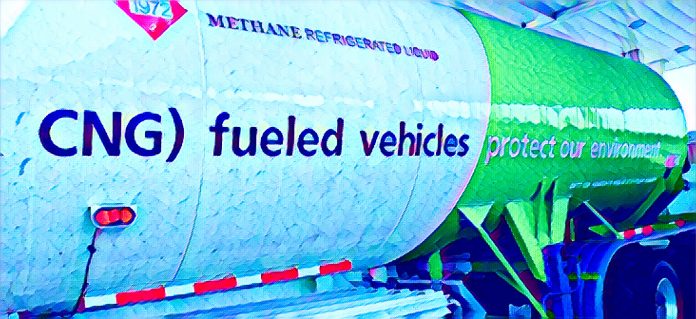KEY POINTS
- Soaring petrol prices are pushing Nigerian drivers to switch to compressed natural gas (CNG) as a cheaper alternative.
- CNG adoption offers drivers relief from high fuel costs and promises long-term savings and environmental benefits.
- The Nigerian government and private sector are working to expand CNG infrastructure nationwide.
As petrol prices soar high in Nigeria, many drivers are switching from petrol to compressed natural gas (CNG) due to its cheaper and renewable nature.
One of the most significant costs that have been experienced by both the business and the common man is the costs of petrol. However, the increasing availability of CNG is giving a good solution, which is cheaper and environmentally friendly.
The conversion to CNG is not only helping to alleviate the current pressure of high fuel prices but also creating a new chapter in Nigeria’s energy sector. With more drivers choosing this cleaner energy source, the domestic CNG market is growing fast, and both government and private actors are actively seeking to expand the infrastructure.
An economic shift
The increase in the price of petrol in Nigeria as threatened driver’s lives so much that they are left with no option than to switch to the use of other fuels.
Business Day has reported that the high cost of petrol has been the main reason for the growing use of CNG. Unlike with petrol where cost varies depending on the world market price of oil, CNG is more constant and is normally cheaper in the long run to those who adopt it.
To the many commercial drivers especially those in the transport industry, CNG is a more reliable and cheaper solution.
Since the expenses of sustaining vehicles that run on petrol are relatively expensive, CNG is gradually becoming popular as a cheaper option. The change is most apparent for fleet operators who are experiencing lower fuel costs and an increase in their profitability.
The environmental and economic impact of environmental efficiency
Besides the fact that CNG is cheaper than petrol, it is also environmentally friendly than petrol. It puts out fewer greenhouse emissions, hence it is considered more environmentally correct.
This change has come at the right time in line with the global practices of cutting on emissions and embracing efficiency on use of energy and means of transport.
Drivers in Nigeria who have switched to CNG say they save more on fuel and also spend less on vehicle maintenance.
Because CNG burns cleaner than petrol, vehicles that use natural gas are more durable and need repairs less often and the oil is changed less often as well. This has been an added incentive for drivers, especially in a country where vehicle maintenance can be a big cost.
Expanding CNG infrastructure
Due to increasing demand of CNG, the Nigerian government and other private companies are in the process of developing more CNG refueling stations.
While the CNG distribution network is still in its infancy, the number of refueling stations in large metropolitan areas such as Lagos and Abuja is growing. This expansion is important in order to accommodate the increasing number of CNG vehicles on the road today.
The government’s attempts to popularize CNG as a fuel that can replace petrol are a part of a larger plan to diversify Nigeria’s energy supply.
It does the same also as it assists in eliminating reliance on imported petrol and growth of domestic natural gas which Nigeria has in its abundance. The country’s efforts to increase the use of CNG is a move towards energy self-sufficiency and a remedy to the escalating fuel prices that are still a burden to the economy.
The private sector is also coming up to the challenge to meet the increasing demand. Some of the companies are putting their money in CNG infrastructure, providing conversion kits to enable motorists to change their cars from petrol to natural gas. These efforts are expected to increase in the future years as more people in Nigeria begin to appreciate the value of CNG.
Looking forward
Although the conversion to CNG is still at its infancy, it has the potential to be a game changer in Nigeria’s energy sector. For drivers, it is an opportunity to free themselves from the constant increase in the price of petrol and get a lifetime benefit.
Given CNG more advantages for environmental and the current government policy towards increasing supply of CNG for cars, there is a clear trend towards greater use of cleaner, cheaper methods of transport.
With the country still struggling to overcome fuel price issues, CNG is the light at the end of the tunnel. As more roads are constructed, and as citizens are made more aware of the advantages of using CNG, it may not be long before the a majority of the drivers in Nigeria make the shift to the new energy source thereby bringing about a revolution in the energy as well as transport sector of the country



